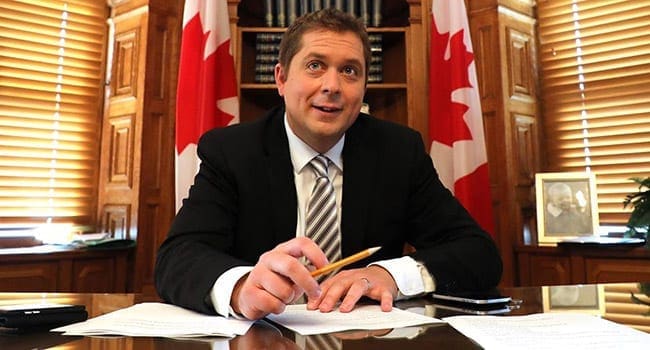 During a traditional political campaign, parties and leaders use as many weapons at their disposal as possible to win elections and form governments.
During a traditional political campaign, parties and leaders use as many weapons at their disposal as possible to win elections and form governments.
In the Oct. 21 Canadian federal election, expect the major party leaders to campaign with like-minded premiers and opposition leaders as part of that strategy.
Liberal Prime Minister Justin Trudeau will appear with Premiers Stephen McNeil (Nova Scotia), Dwight Ball (Newfoundland and Labrador) and Sandy Silver (Yukon).
NDP Leader Jagmeet Singh will knock on doors with B.C. Premier John Horgan and Alberta Opposition Leader Rachel Notley.
Green Leader Elizabeth May doesn’t have the luxury of a green-hued premier, but P.E.I. Opposition Leader Peter Bevan-Baker, B.C.’s Andrew Weaver, New Brunswick’s David Coon and Ontario’s Mike Schreiner all have political influence.
Conservative Leader Andrew Scheer is firmly in the driver’s seat. He has seven premiers to work with: Alberta’s Jason Kenney, Saskatchewan’s Scott Moe, New Brunswick’s Blaine Higgs, Prince Edward Island’s Dennis King, Quebec’s Francois Legault, Manitoba’s Brian Pallister and Ontario’s Doug Ford.
Then again, it could end up only being six. It all depends on how often Scheer wants to be seen in public with Ford.
The major stumbling block is Ford’s sagging poll numbers. Through difficult budget cuts, several mishaps, mismanagement on some files and an inability to shrug off accusations of cronyism since Dean French resigned as his chief of staff, the Ontario premier’s personal approval rating has dipped badly.
In an Abacus Data poll this month, 65 per cent of respondents pegged him as negative and only 20 per cent positive. After less than 14 months in power, that has to sting.
Meanwhile, a Corbett Communications survey for the Toronto Star noted that 54 per cent of respondents felt the Ontario government’s agenda and actions would influence their federal vote. Even worse, 21 per cent of federal Tory supporters would reportedly be “less likely” to vote for Scheer.
The Ontario premier initially dismissed these results by suggesting the polling firms and publications that printed the results are less than friendly to his government. But the message has been heard loud and clear in provincial and federal circles.
Ford told reporters in Kitchener, Ont., last week that while he has a “good” rapport with Scheer, “I’ve talked to Andrew and I’m the premier of Ontario and I’ve got to worry about Ontario. I’m not getting involved in this election.”
When further pressed by reporters on why Scheer wouldn’t even mention his name or discuss him at an event at Mount Sinai Hospital in Toronto, just 850 metres away from the provincial legislature, Ford provided a similar answer.
“I don’t know about distancing himself,” he said. “You can say that about me, too. You could say I’m distancing myself from the federal government and this election. I’m not interested in this election. I’m interested in Ontario.”
This has nothing to do with personal animosity. Scheer and Ford get along quite well, and have similar views on issues like reducing the size of government, lowering taxes, supporting free markets and trade liberalization, and enhancing personal freedoms and liberties.
At the same time, Scheer is in a real dogfight with Trudeau. They’re neck-and-neck in terms of personal popularity among likely Canadian voters, and most opinion polls have the Tories and Liberals in a virtual tie.
Every vote is going to count on Oct. 21. In turn, every premier who can help get those crucial votes will count just a bit more.
It’s not a pleasant thing to say but that’s politics.
I still believe Scheer and Ford will work together on the campaign trail. While the Ontario premier may not end up being a weapon in the federal Tory leader’s main political arsenal, there are fundraisers, office launches and speeches that could benefit from both leaders showing up.
With a little creative strategy and communications magic, the biggest piece of the provincial Tory political puzzle will be out front and centre to help his federal cousin.
Michael Taube, a Troy Media syndicated columnist and Washington Times contributor, was a speechwriter for former prime minister Stephen Harper. He holds a master’s degree in comparative politics from the London School of Economics.
The views, opinions and positions expressed by columnists and contributors are the author’s alone. They do not inherently or expressly reflect the views, opinions and/or positions of our publication.

